Pebble, Microsoft and what could have been with Windows Phone
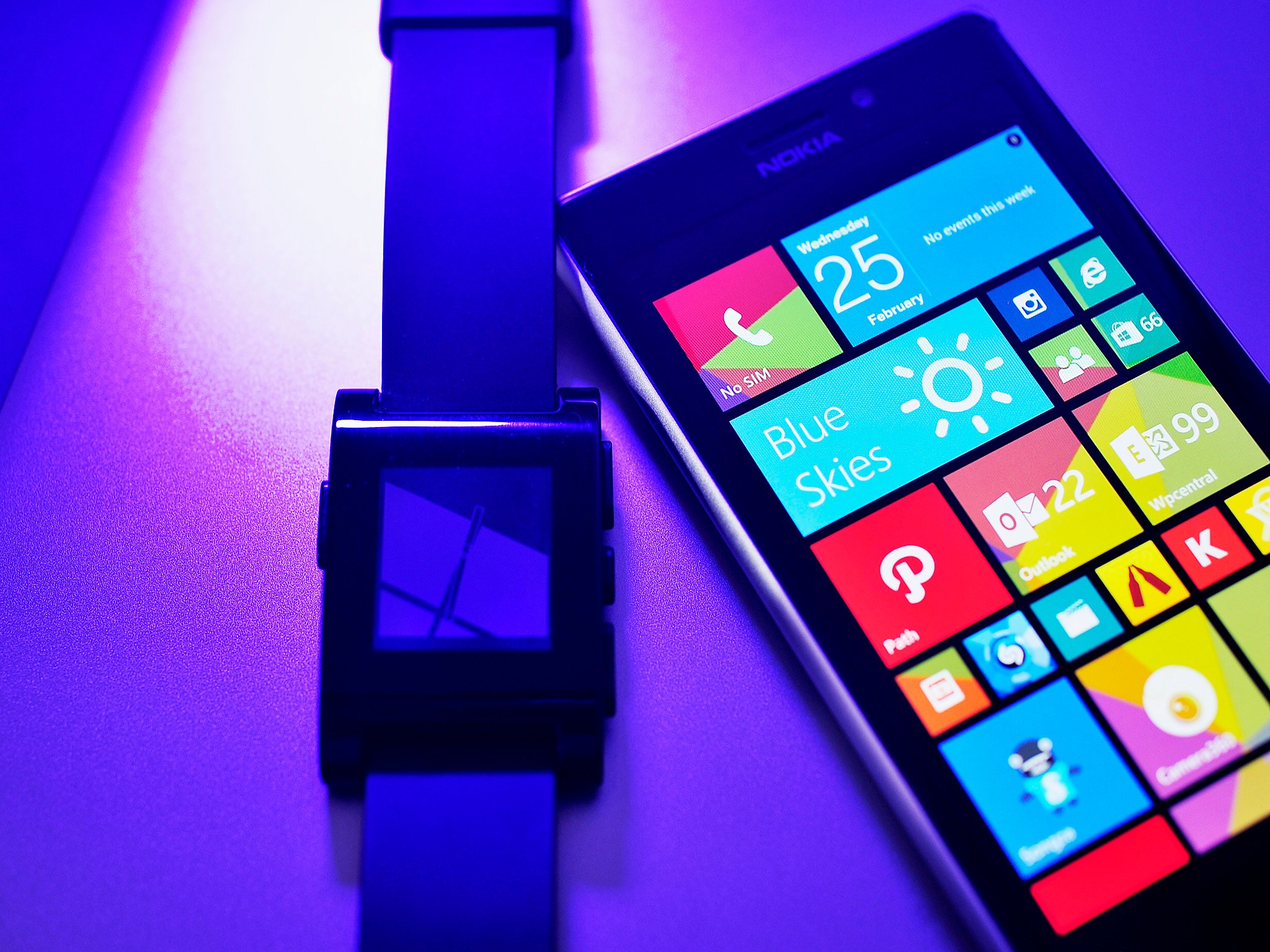
Earlier today, Windows Central ran a story regarding a potential Pebble app coming to Windows Phone. Evidence for the claim comes via a Store listing for an internal app that demonstrates a Pebble watch syncing with Windows Phone 8.1 devices.
At the time, my position was that this app represents a proof-of-concept approach. If Pebble were pleased with the performance and feature-set, a contract to build the actual app and partnership would likely take place.
Speaking with various people familiar with the situation, I have been able to learn the full context of the Microsoft-Pebble state of affairs. The news is fascinating, but the outcome will cause some weeping and gnashing of teeth.
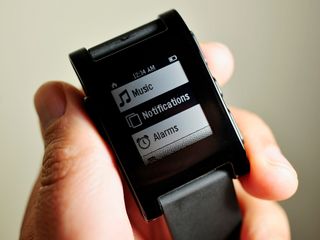
Time machine: Late 2013
Pebble and Microsoft began to discuss the potential for an app in the second half of 2013. Indeed, I was often dropping rather large hints that talks between Pebble and Microsoft were ongoing in various comments.
The plan was for Microsoft to build a demonstration app to prove to Pebble that their smartwatch would sync in all the right ways with Windows Phone. Pebble, like many companies, would prefer a consistent user experience for their products across devices. Requesting Microsoft verify that their OS can handle Pebble is a common and reasonable request before a partnership is signed.
In late 2013, only Windows Phone 8.0 was available on the market with the promise of 8.1 later that spring. Windows Phone 8.1 brought many new APIs to the table, including better Bluetooth Smart support (devices with 4.0 or higher specifications, low-energy support, and updatability). Pebble could not build an app for Windows Phone on their own, but with Microsoft taking control anything was possible.
Just a few months later in spring 2014, Microsoft did not deliver a barebones app that could sync as requested. Instead, we are told they designed an entire Pebble app themselves with nearly complete functionality. The only thing that was missing was the recently announced Pebble Store, but seeing as Microsoft could not have access to many of its components, it was an easy thing to overlook.
Get the Windows Central Newsletter
All the latest news, reviews, and guides for Windows and Xbox diehards.
We hear that Microsoft made quite the impression by delivering a well-polished, entirely functional app so quickly. The only thing that remained between the two companies were the details of the partnership.
This was the plan, and we are told an official announcement for a Windows Phone Pebble app was being pushed for Build 2014 with the app due sometime later that year.
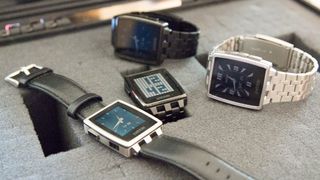
Management gets cold feet
My sources tell me that Microsoft was very cooperative with the Pebble group. Anyone who has worked with Windows Phone evangelists, their management and even – at the time – Nokia employees share the same impression. Redmond bends over backward to win over a company's business. This willingness to partner with Pebble was admirable, but in the end it failed for one main reason: Pebble's management.
As a company, Pebble was riding a lucky wave of positive press and an increasingly loyal fan base. The problem was Google and Apple were looming in the distance as both companies were preparing to jump in on the wearable market.
Pebble partnering up with Microsoft would seem like a safe bet should things get too heavy with Android and Apple. We are told that plans to help distribute Pebble in Microsoft Stores (online and physical), connecting with carriers to co-sell Windows Phones with new Pebble watches, and more were all being considered as strategies.
Cortana integration was even being looked at as a break though technology for Pebble and a way for Microsoft to get a foot in the door on iOS and Android.
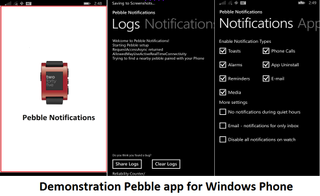
The overarching angle being leveraged was Microsoft needed a smartwatch strategy, and Pebble needed a company with deep pockets to lean on.
Pebble would continue to work with Apple and its Android partners, but Microsoft and their Windows Phone would be more favored. To see a similar strategy in action, look no further than Microsoft fitness darling Fitbit. AT&T is continuing their promotion of bundling the Lumia 830 with a free Fitbit flex and Fitbit products are cross-promoted and sold in all Microsoft Stores.
To my mind, this all sounds like a brilliant plan. Pebble gets a resilient partner; Microsoft works with a spritely, "disruptive" tech company. Long term, Microsoft would even be in an ideal position to acquire Pebble, should the private company want to go down that path.
There is just one problem: Pebble founder and CEO Eric Migicovsky.
Despite Microsoft's attempts to win over Pebble, Migicovsky is reportedly not a fan of the company nor their mobile operating system. The young entrepreneur reportedly nixed any partnership.
Growing up in a world where Google and Apple have dominated the mobile scene, this perception that Microsoft is old and out of touch is seemingly more frequent these days. Particularly with those under 30 (see Snapchat's Evan Spiegel for a similar attitude). Even Microsoft CEO Satya Nadella was unable to persuade him personally.
Keep in mind, the plan I am told was for Microsoft to develop the app, including eating all costs associated within, and even to help Pebble keep Windows Phone app parity long-term with continued support. In exchange, Pebble owns the app. These kinds of deals are very familiar with Microsoft as the company knows it has to be aggressive when winning over clients.
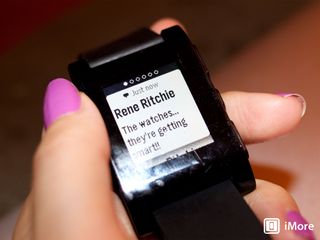
A slow fizzle into 2015
Throughout 2014, discussions about the partnership including financing, reach, retail, and more slowly began to fizzle due to Pebble's lack of interest, not for Microsoft's lack of trying.
To my knowledge, as of February 2015, there is no longer any talks between the companies about a Pebble app, making the prospects for one looking bleak. Although this internal Microsoft app was updated last week, raising some eyebrows, this is likely just the developer continuing to tinker just in case Pebble decides to return Microsoft's phone calls.

In fact, Pebble even confirmed that there is no Windows Phone app today in a Reddit AMA. Pebble's Thomas Sarlandie, Head of Developer Relations flat out said so. He is telling the truth. However, he is also failing to mention how Microsoft made them an app and that they are choosing to ignore the platform.
For now, Pebble is set on forging their path without Microsoft at their side. This choice all comes just days after another successful Kickstarter to raise money for their new Pebble Time smartwatch, featuring an always-on color, e-paper display.
Maybe Migicovsky and Pebble will change their mind, but in the interim, we do not expect to hear any more about Windows and Pebble.

Daniel Rubino is the Editor-in-chief of Windows Central. He is also the head reviewer, podcast co-host, and analyst. He has been covering Microsoft since 2007 when this site was called WMExperts (and later Windows Phone Central). His interests include Windows, laptops, next-gen computing, and wearable tech. He has reviewed laptops for over 10 years and is particularly fond of 2-in-1 convertibles, Arm64 processors, new form factors, and thin-and-light PCs. Before all this tech stuff, he worked on a Ph.D. in linguistics, performed polysomnographs in NYC, and was a motion-picture operator for 17 years.